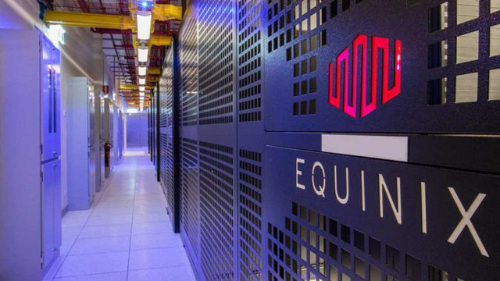Equinix to Invest $140M in Nigeria to Expand Internet Infrastructure

TLDR
- Global data center firm Equinix will invest $140 million to expand digital infrastructure across southern Nigeria
- The Port Harcourt data center, PR1, will serve as the first Nigerian landing station for Meta’s 2Africa submarine cable
- Despite progress in subsea connectivity, only 45% of Nigerians had broadband access as of January 2025
Global data center firm Equinix will invest $140 million to expand digital infrastructure across southern Nigeria, including a new data center in Port Harcourt and the expansion of its Lagos facility LG3. The move aims to decentralize Nigeria’s internet capacity, 70% of which is concentrated in Lagos.
The Port Harcourt data center, PR1, will serve as the first Nigerian landing station for Meta’s 2Africa submarine cable, boosting bandwidth capacity and improving resilience in the region. The announcement comes five months after Equinix completed the integration of MainOne, which it acquired for $320 million in 2022.
Nigeria hosts eight subsea cables, including Google’s Equiano and Meta’s 2Africa. Equinix is routing traffic over multiple cables to avoid single points of failure. Despite progress in subsea connectivity, only 45% of Nigerians had broadband access as of January 2025. Nigeria needs an additional 95,000 km of fiber to achieve full coverage, according to the World Bank.
Daba is Africa's leading investment platform for private and public markets. Download here
Key Takeaways
Equinix’s investment aims to close Nigeria’s middle-mile infrastructure gap—the critical layer connecting coastal landing stations to inland users. While subsea capacity has grown through systems like Equiano and 2Africa, much of the country remains underserved. By launching its PR1 facility in Port Harcourt and expanding LG3 in Lagos, Equinix is diversifying Nigeria’s bandwidth geography and creating redundancy in the national internet backbone. The Port Harcourt site will also play a strategic role in hosting Meta’s 2Africa cable, increasing capacity for Nigeria’s oil-rich southern corridor. However, achieving national digital inclusion will require deeper fiber rollout beyond major cities. The Federal Government’s Broadband Alliance initiative targets 70% broadband penetration by 2025, but current access remains at 45%. Equinix’s neutral interconnection model and operational scale offer a foundation to support this goal. The firm’s approach to active/active traffic routing across subsea systems is also critical for building a resilient and secure West African digital economy.

Next Frontier
Stay up to date on major news and events in African markets. Delivered weekly.
Pulse54
UDeep-dives into what’s old and new in Africa’s investment landscape. Delivered twice monthly.
Events
Sign up to stay informed about our regular webinars, product launches, and exhibitions.




